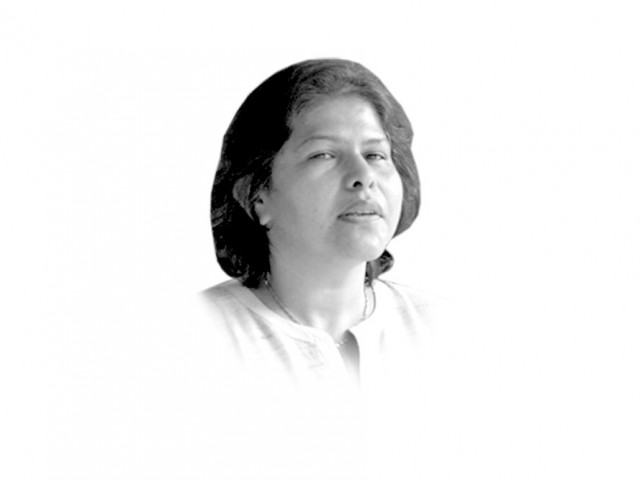Producing uneducated literates
Education that compromises on quality does not succeed in producing the right product to help a nation grow.

The writer is an independent social scientist and author of Military Inc.
Such tales help explain better the lament in the latest Unesco global monitoring report titled “Education for All” that given the poor quality of education in developing countries, children are “failing to learn the most elementary skills”. Given the trends in education, the Unesco report further states that it will take until 2072 for all the poorest young women in developing countries to become literate. This is because the condition of female education is the worst.
While we pile up experts and consultants on education mainly in Islamabad to design and implement programmes to educate Pakistan, no one is attending to the fact that poor quality education that may not necessarily result in social mobility or enhance possibilities for those registered in these programmes will not change the fate of the poor, or the country, at large.
The government would love to see every child enrolled in a school. That is certainly a good idea. But is there any attention being given to what is taught and what is the quality of the product? Many criticise the government primary and elementary education systems. Therefore, a parallel system was erected many years ago in the name of public-private partnership. The idea was for the government not to invest in the infrastructure or pay the teachers but leave the responsibility to private partners who would be paid the children’s fees. Many consider the project that was launched mainly in Punjab as a success story. According to the PTI’s Jahangir Tareen, the public-private partnership reduced costs for the state and provided better education. We already have many a consultant who have argued in the past that private schools are better than government schools. Such assessments are probably based on results. In the public-private partnership venture, the National Testing System (NTS) is a key variable. An exam is taken on a regular basis and those schools demonstrating a minimum 45 per cent of pass rate are given assistance.
But here is the catch. The private entrepreneurs who run a school or a chain of schools know that the government pays a fee for a certain number of children enrolled per school. Furthermore, there is little checking of how much is spent on paying teachers or on children. Thus, running schools have turned into a big racket and a profitable business. As per Mr Tareen’s formula, the government does not have to pay high fees to teachers or bother with discipline. The results may be comparatively better than in government schools. Recently, I had a chance to go around schools and educational institutions in south Punjab and it was interesting to learn that government schools were comparatively doing better in terms of level of general knowledge of children and their overall confidence.
The private schools are almost run madrassa style, which means, forcing children to learn by rote. The teachers are better disciplined in terms of being more fearful of losing their job so they place more emphasis on learning by rote than explaining concepts. But does one expect better from a teacher who gets paid a maximum of Rs3,000-4,000 a month? Most of these government-funded private schools tend to pay much less than the vouchers they make them sign. Referring to the Unesco report, one of the key reasons of poor quality education is an underpaid teacher. Yet, we expect our teachers, a majority of whom are females, to produce good results. Sadly, those whose kids go to grammar school type of educational institutions believe this is a workable system.
There are other layers of corruption as well, such as paying people for getting reasonable NTS results to remain in business. Or taking extra children who are used as dummies to fill places of absentees, especially on days when inspection teams visit to show almost 100 per cent attendance.
Yet, the poor tend to send their children for this kind of education mainly because it is free and in the hope that someday their children will make it to higher tiers of the socio-economic cadre. Surely, there must be some good examples out of this system as well. However, the key point is that education that compromises on quality does not succeed in producing the right product to help a nation grow.
The public-private partnership may seem like a profitable idea but it actually may not be the case. Surely, government schools in Punjab or Khyerb-Pakhtunkhwa do not match the standards of very competitive private schools and need improvement. In other provinces, like Sindh and Balochistan, conditions are abysmal. The product coming out of the schooling system has no capacity to compete. The number of ghost schools in these two provinces or in rural areas of south Punjab speak of the priority of the leadership. But then, the government badly needs to invest in education and the health of its citizens. As a former vice-chancellor of Bahauddin Zakariya University explained to me, our dire straits are because the state couldn’t fulfill its key responsibility to educate its people.
To repeat a cliche, it is not bombs and warheads that make nations strong but the quality of its educational institutions.
Published in The Express Tribune, February 6th, 2014.
Like Opinion & Editorial on Facebook, follow @ETOpEd on Twitter to receive all updates on all our daily pieces.














COMMENTS
Comments are moderated and generally will be posted if they are on-topic and not abusive.
For more information, please see our Comments FAQ